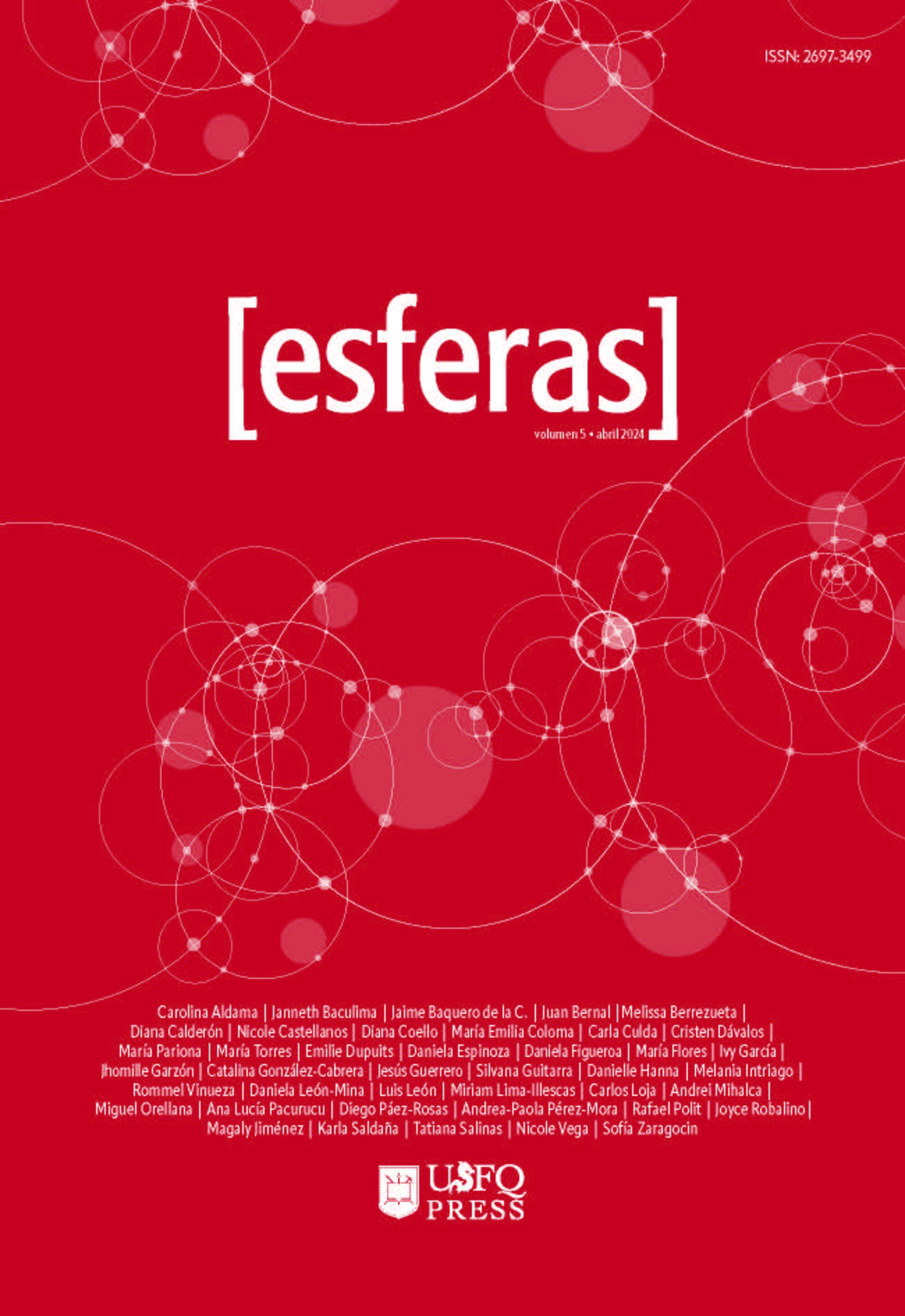Affective development in families of the EEB Gaspar Sangurima of the Santa Ana parish, in Cuenca
Published 2024-04-01
Keywords
- parenting,
- attachement,
- workshops,
- bonding,
- breeding
How to Cite
Copyright (c) 2024 Janneth Baculima

This work is licensed under a Creative Commons Attribution-NonCommercial 4.0 International License.
Abstract
The connection between universities and society plays a pivotal role in academia’s efforts to bridge the gap between rural and urban areas. In this context, this article aims to consolidate the experiences from three collaborative projects conducted at the Gaspar Sangurima School of Basic Education. These projects focused on educating parents and caregivers about topics related to family dynamics, emotional bonding, and effective family development. Additionally, they aimed to enhance emotional expression skills in children and adolescents. The methodology employed encompassed metaphorical, cognitive, artistic, and recreational techniques, grounded in systematic vision and attachment. Facilitators for these initiatives were students from the University of Azuay. The qualitative evaluation of the results revealed that the most significant achievement was enabling parents and caregivers to engage with their clients in thoughtfully designed environments. This underscores the necessity of these informative spaces, where both content and techniques fostered introspective work and promoted interaction among participating children and adolescents. In conclusion, these projects have demonstrated the value of such information spaces in nurturing family well-being and development.
Downloads
References
- Ainsworth, M. D. S. (1978). The bowlby-ainsworth attachment theory. Behavioral and brain sciences, 1(3), 436-438.
- Benítez, Y. G., Tapia, J. P. R., & Guevara, L. A. C. (2018). Relationship between Maternal and Infant Behaviour during Story Time. Journal of Education and Human Development, 7(2). https://doi.org/10.15640/jehd.v7n2a13
- Bögels, S. M., Hellemans, J., van Deursen, S., Römer, M., & van der Meulen, R. (2014). Mindful parenting in mental health care: Effects on parental and child psychopathology, parental stress, parenting, coparenting, and marital functioning. Mindfulness, 5(5), 536-551.
- Benítez, Y. G., Tapia, J. P. R., & Guevara, L. A. C. (2018). Relationship between Maternal and Infant Behaviour during Story Time. Journal of Education and Human Development, 7(2). https://doi.org/10.15640/jehd.v7n2a13
- Cárcamo, R., & Silva, J. (2021). Apego y Parentalidad (Mediterraneo).
- Ferreyros Peña, M. (2017). Apego seguro y desarrollo del infante en poblaciones vulnerables. Avances en Psicología, 25(2), 139-152. https://doi.org/10.33539/avpsicol.2017.v25n2.350
- García, Y. A., & Grau, I. A. (2018). Entrenamiento Conductual y Atención Plena sobre el Estrés Parental y Relación Padre-Hijo. Psicologia: Teoría e Pesquisa, 33(0). https://doi.org/10.1590/0102.3772e3323
- Instituto Nacional de Estadísticas y Censo. (s.f). https://cutt.ly/Xwbwj0Tx
- Murillo, A. L., Sánchez-Gómez, M., & Bresó, E. (2020). Inteligencia emocional en familia: un programa formativo para padres e hijos de 3 a 6 años. KNOW AND SHARE PSYCHOLOGY, 1(4). https://doi.org/10.25115/kasp.v1i4.4339
- Pacurucu- Pacurucu, A. L., Baculima-Bacuilima, J. L., Cordero-Cobos, L., & Freire-Pesántez, A. (2023). Competencias Parentales en progenitores de adolescentes de colegios fiscales y particulares de Cuenca, Ecuador. Veritas & Research, 5(1), 70-80. https://cutt.ly/iwbwxssc
- Palacios-Madero, M.-D., Villavicencio-Alvarado, F., & Mora-Oleas, C. (2015). Evaluación de los estilos educativos familiares en la ciudad de Cuenca. MASKANA, 6(2), 31-45. https://doi.org/10.18537/mskn.06.02.03
- Pitillas Salvá, C., Halty Barrutieta, A., & Berástegui, A. (2016). Mejorar las relaciones de apego tempranas en familias vulnerables: El programa Primera Alianza. Clínica Contemporánea, 7(2), nn. http://dx.doi.org/10.5093/cc2015a3
- Ramos, P., Vázquez, N., Pasarín, M. I., & Artazcoz, L. (2016). Evaluación de un programa piloto promotor de habilidades parentales desde una perspectiva de salud pública. Gaceta Sanitaria, 30(1), 37-42. https://doi.org/10.1016/j.gaceta.2015.08.008
- Rodríguez, A., & Barbagelata, N. (2014). Fundamentos del paradigma sistémico. Manual de Terapia Sistémica: Principios y herramientas de intervención. Desclée de Brouwer.
- Sims, P.A. (2003). Working with metaphor. American Journal of Psychotherapy, 57, 528-536.
- Vargas, J., Lemos, V., & Richaud, M. C. (2017). Programa de fortalecimiento parental en contextos de vulnerabillidad social: Una propuesta desde el ámbito social. 34(1), 157-172. https://cutt.ly/6wbwUYf9

